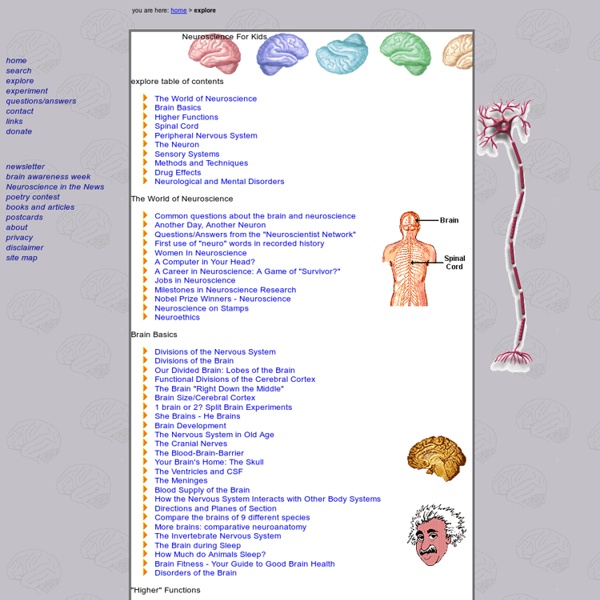Brain Explorer
A Theory on the Deja Vu Phenomenon
A Theory on the Deja Vu or Déjà vu Phenomenon During the time while this web-page has been on the Internet, more than three thousand people (up to Nov 2009) have e-mailed to say that they have Déjà Vu experiences. That is interesting, but their descriptions have virtually always described some different phenomenon. If a person has any pre-knowledge of something that is yet to happen, like in a dream, it cannot be Déjà Vu, and is likely to be some type of Precognition. This last part effectively eliminates credible Deja Vu from occurring in any place that the person has already been! Now, YOU certainly believe that you can remember ALL the experiences you have ever had, and that there could not possibly be any forgotten memories in you! So our minds are definitely CAPABLE of absolutely eliminating some memories from our consciousness. Here is a hypothetical example of Deja Vu, assuming that you are not an Eskimo! Here is another potential example of what an actual deja vu might be.
Human Brain Cell Transplantation -- Alternative Weight Loss Blog
A shot in the head might not be such a bad thing, after all. A new study out of Harvard University came to the surprising conclusion that it may indeed be possible to trigger new cell growth in parts of the mammalian brain by injecting the brain with healthy cells, where once it had been thought impossible to repair abnormalities or damage.1 A team of researchers working under Dr. As a result, write the researchers, "Donor neurons differentiated and integrated as four distinct hypothalamic neuron subtypes, formed functional excitatory and inhibitory synapses, partially restored leptin responsiveness, and ameliorated hyperglycemia and obesity in db/db mice." The repair wasn't perfect. The researchers concluded, "These experiments serve as a proof of concept that transplanted neurons can functionally reconstitute complex neuronal circuitry in the mammalian brain." As far as losing weight goes, then, you might not want to wait for a shot in the head. 1 Paddock, Catharine. 2 Miller, Greg.
Why Do People Yawn?
Could yawning be all about cooling down the brain? Err, don’t people yawn because they’re bored and/or tired? Yes, it’s true people do yawn more at bedtime or after they’ve woken up and they do yawn when they’re bored (people even yawn in their sleep). But yawning isn’t that simple. Many people believe that yawning gets more oxygen into the body or expels more carbon dioxide. The truth is no one really knows the real root cause of a yawn. Hot brain My favourite physiological reason for yawning is that it might help cool the brain down (Gallup & Gallup, 2007). Oddly this may help explain the paratroopers jumping out of a plane. Yawning may also partly be about stretching muscles since yawning sets off the urge to stretch. Social yawning It’s well-known that yawns are contagious. Yawns are most contagious between members of the same family, followed by friends, acquaintances and lastly strangers (Norsica et al., 2011). So, why is yawning contagious in the first place?
New Alzheimer's Criteria Would Change Diagnosis for Millions | Mild Alzheimer's Disease | Mild Cognitive Impairment
Almost everyone currently diagnosed with a mild form of Alzheimer's disease would be downgraded to not having the condition, if new proposed criteria for the diagnosis of cognitive problems were applied, a new study shows. Instead, people diagnosed as having "very mild" and "mild" Alzheimer's disease would be reclassified as having mild cognitive impairment (MCI), which is currently recognized as an intermittent stage between the normal loss of mental function that comes with age and the development of dementia. The new criteria broaden the definition of mild cognitive impairment, and this will cause confusion when doctors try to diagnose MCI and Alzheimer's, said study researcher Dr. John Morris, a professor of neurology at Washington University School of Medicine in St. Louis. Moreover, the new criteria highlight the fallacy of thinking about MCI and Alzheimer's as different entities, Morris said. The report is published online today (Feb. 6) in the Archives of Neurology.



